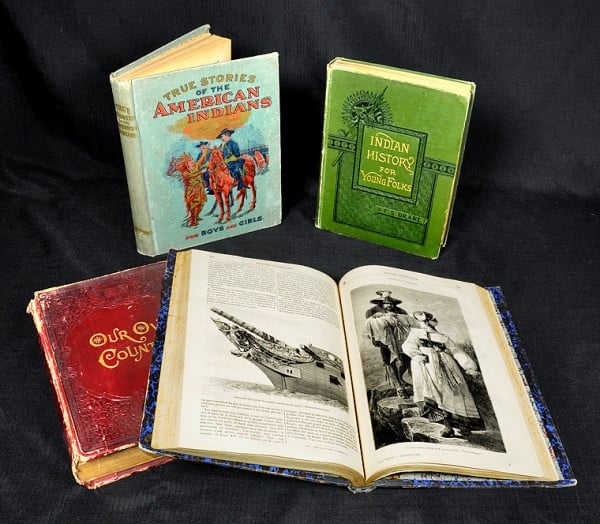
If you own or inherit a set of old books, whether its a valuable historical collection or a set of your grandmother’s recipe books, you’ll want to keep them safe. Old books can be damaged by several factors including moisture, heat, sunlight, and general mishandling. Here are some guidelines on preserving your valued books.
Handle with Care
As noted by the Library of Congress, proper handling is one of the keys to preserving old books. If the book is on a shelf, pull the book out from its middle instead of reaching for the top of the book’s spine, which in the case of older books is often fragile.
Before you open the book, make sure your hands are clean—regular soap and water will do the trick nicely.
When you open an older book, don’t let it sit flat. Instead, use items such as other books or clean/dry rolled-up hand towels to prop the sides of the book so that the spine and pages aren’t over-stressed and possibly cracked or damaged.
While you’re looking through an old book, make sure there are no food or beverages around.
If you’re going to take notes, follow the universal rule of every rare book librarian: use a pencil. No pens should be anywhere near your rare old books.
If you want to save a page, do not use a bookmark made out of acidic materials (regular notebook paper, index cards, Post-It Notes, etc.), as these can cause the ink and paper to deteriorate over time. You should also avoid paperclips or folding back the corner of the pages, which can damage fragile old books (and lower the book’s value if it’s rare). Instead of any of these potentially damaging methods for marking a page, we recommend using a piece of archival paper as a bookmark.
If you want to write a note on this acid-free bookmark please do so in pencil, as the oils and solvents in pen inks might stain or transfer to the pages.
If your books are damaged, consider using filmoplast tapes to re-hinge a book or to mend torn pages. If your book is old, rare, or sentimentally or monetarily valuable, however, you might wish to contact a professional book restorer or conservationist.
Consider the Conditions
Various elements can damage a book. Store your books in a place with lower humidity fluctuations and a relatively normal temperature range–no attics or basements!. When it comes to preserving old books, it’s important that you try and maintain these conditions at all times. Books can also be affected if the environment changes seasonally. If you have an in-home library, keep the temperature between 65 and 72 degrees Fahrenheit. The air should also have a humidity level of between 30 and 50 percent.
If your home is prone to excess humidity, consider getting a dehumidifier that will remove the extra moisture. You may also want to keep your important or valuable books in a closet or darkened unused room as light—especially direct sunlight from a window—can cause ink to fade and leather or fabric bindings to age more quickly.

Avoiding storing books in basements, which are vulnerable to floods (naturally occurring or via leaky water heaters), or attics (with their potentially leaky roofs). Basements and attics also typically experience extreme heat and humidity fluctuations.
Instead, consider placing your important or rare books in a dark, cool closet. Regardless of where you store them, be sure to dust regularly to prevent mold spores from building up and eventually growing on the books’ pages. If the books are placed on a shelf (always out of direct sunlight!), try to keep books with others of the same size. That way the pressure is equalized and a smaller book won’t “indent” on a larger book next to it. You should also make sure your books are stored upright, not slanted or on top of one another. Use heavy bookends to help keep them in place.
You can also protect your books by placing them in metal edge boxes or artifact boxes, which are acid- and lignin-free, which will prevent light and other damaging elements from coming into contact with your books. If you’re very concerned about keeping your rare or sentimentally/monetarily valuable books safe, it is always recommend to go the extra mile by placing them in unsealed individual polyethylene bags (unsealed so the books can “breathe”) which can further protect books and bindings from dust, moisture and various household pollutants.
Contact Us
If you have any additional questions or would like more information on the archival storage and presentation materials that are right for you, please contact us here at Archival Methods. We’re always there to help with any archiving, storage, or presentation questions you may have.


